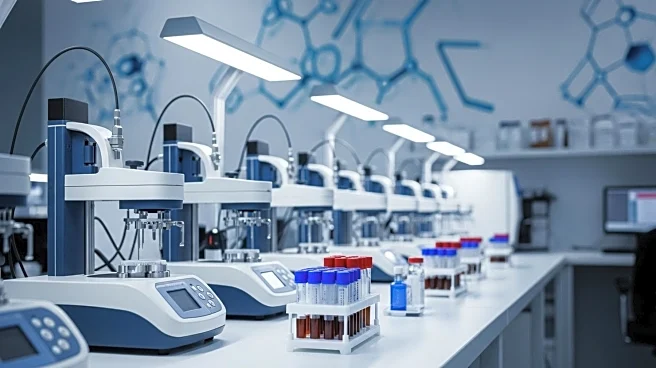What's Happening?
Safe Supply Streaming Co Ltd. has entered into a 12-month manufacturing and supply agreement with MobileDetect Bio, Inc. to produce 200,000 ToxiShield products in the U.S. This agreement follows the U.S. Department of Health and Human Services' allocation of over $1.5 billion for opioid response programs. The ToxiShield products, developed by Safe Supply's subsidiary Safety Strips Tech Corp., are rapid test kits used to detect fentanyl and other harmful substances. The kits will be manufactured at MDBio's facility in Sugar Land, Texas, and are designed to support communities, universities, nonprofits, and public agencies in addressing the opioid crisis.
Why It's Important?
The agreement is significant as it aligns with national priorities to combat the opioid crisis, which has been exacerbated by the widespread presence of fentanyl. The U.S. government has committed substantial funding to support overdose prevention and recovery efforts, highlighting the urgency of deploying effective health and safety tools. By manufacturing domestically, Safe Supply can quickly respond to the needs of various stakeholders, potentially saving lives and reducing the impact of opioid-related harm. The initiative reflects a broader mission to meet public health needs with scalable, science-based technologies.
What's Next?
The collaboration between Safe Supply and MDBio is expected to enhance the distribution of ToxiShield products across the U.S., supporting the goals of the State and Tribal Opioid Response programs. As the manufacturing process begins, stakeholders such as community organizations and public health agencies may increase their engagement with these tools, potentially leading to expanded use and further innovation in harm reduction strategies. The ongoing commitment to addressing the opioid crisis may also lead to additional funding and support for similar initiatives.
Beyond the Headlines
The partnership between Safe Supply and MDBio underscores the importance of innovation in public health responses. By leveraging technology and strategic partnerships, companies can contribute to solving complex societal issues. The focus on evidence-informed solutions highlights the role of data and science in developing effective interventions, which could influence future public health policies and practices.










